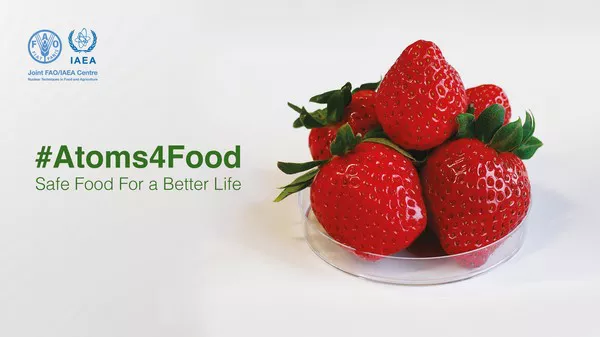Next week, Vienna will host the International Symposium on Food Safety and Control, a significant event organized by the International Atomic Energy Agency (IAEA) and the Food and Agriculture Organization of the United Nations (FAO). Scheduled from May 27 to 30, the symposium aims to bolster global food supply chains and enhance defenses against threats to food security and trade.
The event will convene nearly 500 participants from 112 countries, providing a platform to explore innovative mechanisms for improving food control systems and utilizing nuclear technologies to strengthen food safety.
James Sasanya, Acting Section Head of the Food Safety and Control Section at the Joint FAO/IAEA Centre of Nuclear Techniques in Food and Agriculture, emphasized the symposium’s objectives. “This symposium aims to boost the adoption of nuclear and related techniques to address key issues affecting food safety and quality, contributing to food security and climate change adaptation,” Sasanya stated.
Foodborne diseases, affecting an estimated 600 million people annually, pose a significant threat to human health. The symposium will serve as a forum for sharing cutting-edge research and developments in nuclear technologies for food safety and control. It will also provide networking opportunities between public and private sectors and help define future research directions.
Nuclear and isotopic techniques are crucial for ensuring safe and high-quality food through analytical laboratory services. These technologies also help reduce post-harvest losses and control pests and diseases that impede exports.
The symposium, organized by the Joint FAO/IAEA Centre, will cover critical topics such as food authenticity, combating food fraud, food and phytosanitary irradiation, chemical residues and contaminants in food and feed, emergency preparedness and response, pathogen detection in food, standard setting, risk assessment, and the One Health approach to human, animal, and environmental health. Additionally, discussions will include the Atoms4Food Initiative, focusing on food safety and control, and the importance of partnerships.
The Joint FAO/IAEA Centre and its Agriculture and Biotechnology Laboratory support applied research through over 25 coordinated research projects annually, fostering cooperation among 400 international and national research institutions and experimental stations.
Effective food control systems are essential for ensuring food safety and quality, crucial components of food security, and for maintaining fair practices in international food trade. These systems also combat food fraud, promoting economic opportunities along the food supply chain.
Participants will include representatives from IAEA and FAO Member States, scientists, researchers, laboratory analysts, policymakers, regulators, food producers, and other stakeholders involved in food safety and control systems.
The peaceful application of nuclear technologies plays a vital role in safeguarding national and international food supply chains and enhancing their resilience to challenges related to food security and climate change. The Joint FAO/IAEA Centre, in conjunction with the IAEA technical cooperation programme, aids its members in developing and implementing science-based solutions for regulating food safety and quality.


























